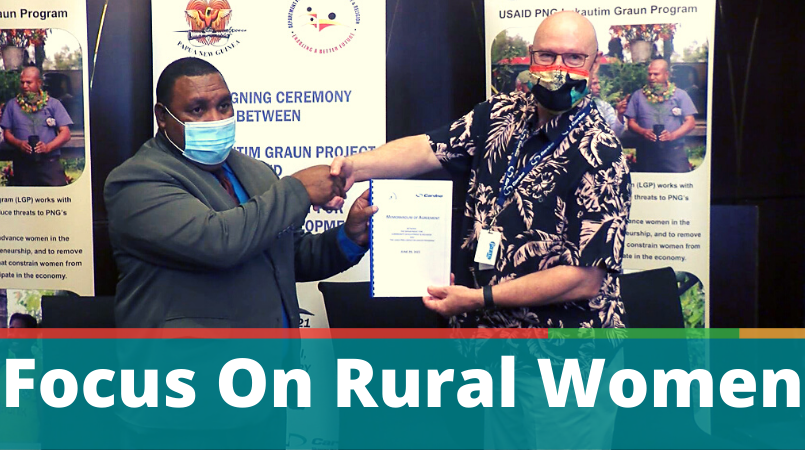
The USAID PNG Lukautim Graun Program (LGP) and the Department for Community Development and Religion (DfCDR) yesterday signed a Memorandum of Agreement (MoA) to work in partnership in five provinces along the Bismarck Forest Corridor.
The Lukautim Graun Program provides support to the PNG Government for conservation and protection of the country’s rich biodiversity. An estimated 85 percent of PNG’s population lives in rural and remote areas and, consistent with global trends, poverty levels are higher in these communities than in towns and cities.
The livelihoods and wellbeing of people living in these rural and remote areas is directly tied to the wellbeing and health of the environment. The stability and health of communities depends on the stability and health of the ecosystems that surround them.
The partnership will bridge the development gap between the estimated 85 percent of the people that make up the informal economy; 60 percent of which are women, to ensure they have access to essential government services that will enable them to move into the SME and micro SME sector.
USAID program also receives funds from the US White House Women’s Global Development and Prosperity Initiative. This fund enables the program to blend efforts to protect biodiversity with a focus on women’s economic empowerment.
USAID Representative, Julie Hulama, said: “Papua New Guinea was one of the first countries to receive some grant support for that. And so, that particular project really looks at women, to really help women prosper in the workforce and also succeed as entrepreneurs, and to be enabled in the economy.”
Acting Secretary for the Department for Community Development & Religion, Jerry Ubase, said the department is not ignorant to the challenges that torment Papua New Guinean women, especially those who remain subject to poverty, gender based and sorcery related violence.
“This indicates the commitment of all stakeholders, particularly our development partners, through Lukautim Graun Project, who share a common interest in expanding the delivery of services to the remotest part of the country and ensuring the rights of our womenfolk are made real.”
This new partnership will bring innovation, support to local-based solutions, increase self-reliance and provide sources of funding for a combined approach to biodiversity conservation and women’s economic empowerment.
